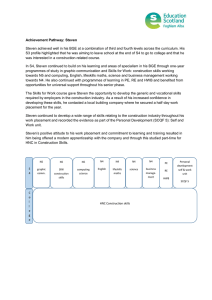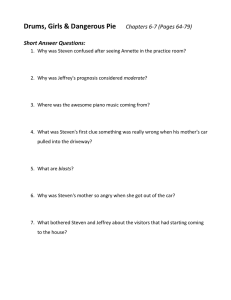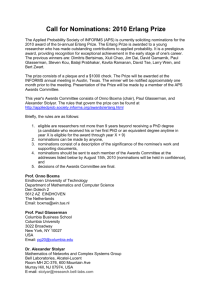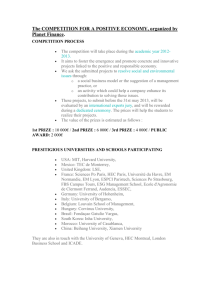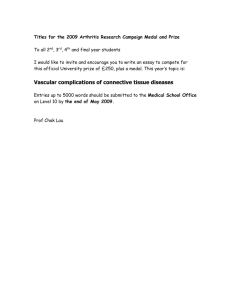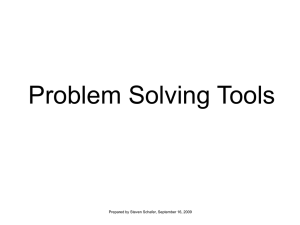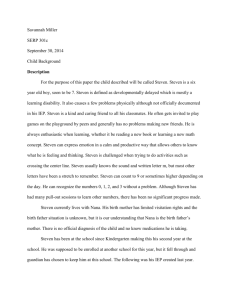Citation - Informs
advertisement
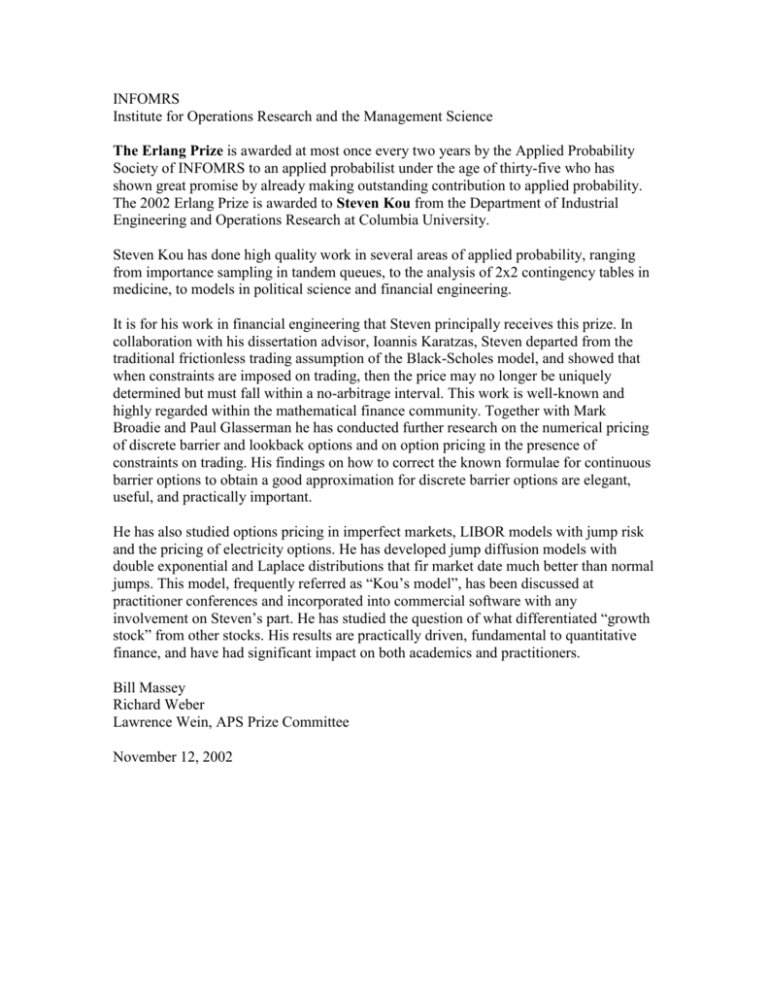
INFOMRS Institute for Operations Research and the Management Science The Erlang Prize is awarded at most once every two years by the Applied Probability Society of INFOMRS to an applied probabilist under the age of thirty-five who has shown great promise by already making outstanding contribution to applied probability. The 2002 Erlang Prize is awarded to Steven Kou from the Department of Industrial Engineering and Operations Research at Columbia University. Steven Kou has done high quality work in several areas of applied probability, ranging from importance sampling in tandem queues, to the analysis of 2x2 contingency tables in medicine, to models in political science and financial engineering. It is for his work in financial engineering that Steven principally receives this prize. In collaboration with his dissertation advisor, Ioannis Karatzas, Steven departed from the traditional frictionless trading assumption of the Black-Scholes model, and showed that when constraints are imposed on trading, then the price may no longer be uniquely determined but must fall within a no-arbitrage interval. This work is well-known and highly regarded within the mathematical finance community. Together with Mark Broadie and Paul Glasserman he has conducted further research on the numerical pricing of discrete barrier and lookback options and on option pricing in the presence of constraints on trading. His findings on how to correct the known formulae for continuous barrier options to obtain a good approximation for discrete barrier options are elegant, useful, and practically important. He has also studied options pricing in imperfect markets, LIBOR models with jump risk and the pricing of electricity options. He has developed jump diffusion models with double exponential and Laplace distributions that fir market date much better than normal jumps. This model, frequently referred as “Kou’s model”, has been discussed at practitioner conferences and incorporated into commercial software with any involvement on Steven’s part. He has studied the question of what differentiated “growth stock” from other stocks. His results are practically driven, fundamental to quantitative finance, and have had significant impact on both academics and practitioners. Bill Massey Richard Weber Lawrence Wein, APS Prize Committee November 12, 2002


